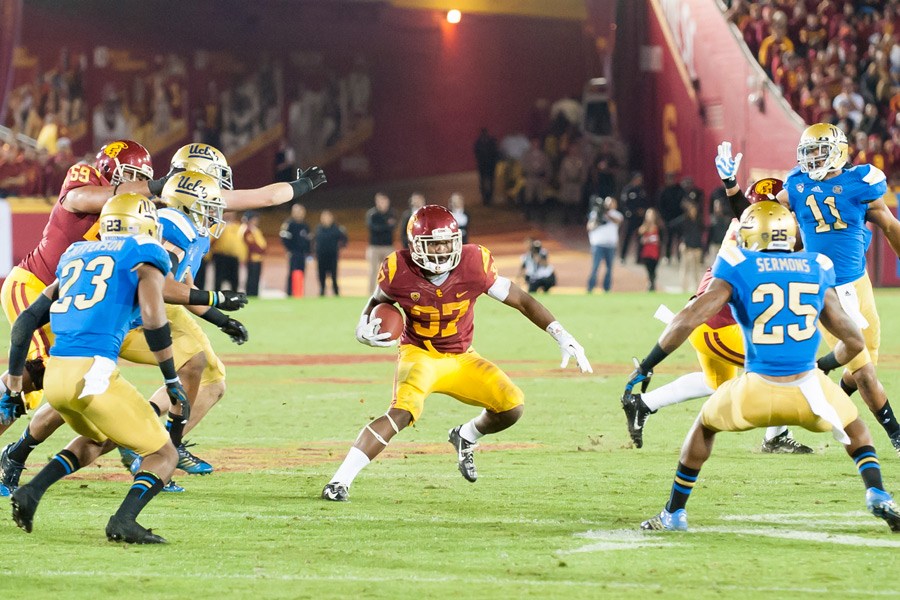USC football culture echoes high school rom-com cliches

There are three things that USC is famously known for: scandals, corruption and perhaps most traditionally, football. Out of the three, Trojan football has created a distinct reputation that comes with the name. Here at USC, the football season in the fall dominates every aspect of students’ social calendars.
Every home game is accompanied by tailgating to build school spirit and excitement. The team and games are covered by local news, and virtually every student on campus recognizes the players’ names. But can all of this be too cliche?
USC football is nationally recognized as one of the best college football teams in the Division I league. Since 1888, it has a win-loss-tie record of 839-346-54. Additionally, the team is No. 8 in the nation in bowl-winning percentage. USC is also one of the top producers of NFL draftees, claiming to have a nation-high of 509 student-athletes to be drafted thus far.
The success and talent from the Trojans and the campus sports culture undoubtedly shape a unique aspect of the overall USC experience for students. However, the University’s current atmosphere echoes cliches that are often depicted in classic teenage rom-coms.
Common tropes from these types of movies depict the school’s star athletes as jocks and royalties who dominate the social hierarchy. Of course, the writers exaggerate the way these fictional characters exist. USC’s football team carries the same recognition, where the quarterback’s name is plastered everywhere on social media and local news outlets that cover the games.
In the movies, the student body celebrates the team with an intense amount of school spirit and pride. This is widely encouraged here, too. At USC, the Trojan spirit and pride are everywhere, especially on game day. Tailgating is our equivalent of the celebration — a day where everyone in the community gathers on campus to build the excitement of the upcoming game, parading how awesome Trojans and the team are.
Because USC encourages this kind of enthusiasm surrounding our football team, the players inevitably are put into a spotlight and pedestal in no fault of their own. Common students may be fascinated by the popularity that comes with the football title. Seeing players on campus instantly initiates a feeling of praise, similar to being star-struck, as is usually depicted in the movies.
USC football culture and school spirit are unlike any other. Living in this reality feels unreal sometimes, like something out of an adolescent romantic comedy. The way we perceive and celebrate this school sport transcends the common fictional clichés from the movie screen, embedding them into reality. When everyone contributes to this celebration, these clichés are inevitably ingrained within the culture, turning it into what we eventually identify as school traditions.

